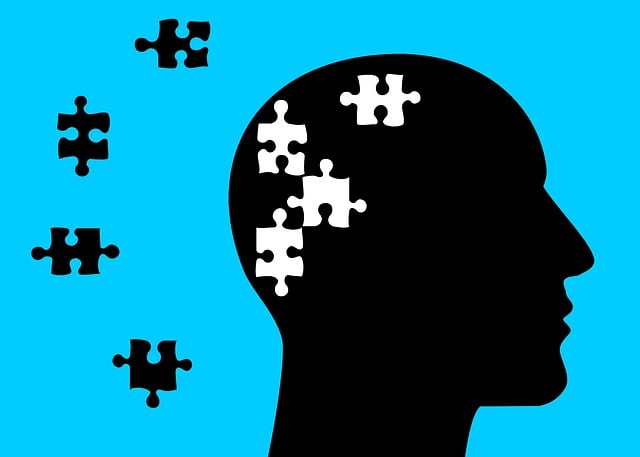Centennial Autism Spectrum Disorder (ASD) therapy focuses on emotion regulation, using tailored exercises to enhance self-awareness and accurate emotional labeling. This forms a foundation for exploring healthy coping mechanisms and mental wellness coaching, improving emotional resilience over time. Beyond therapy, stigma reduction efforts create inclusive environments where ASD individuals can openly express emotions, fostering growth and well-being. Centennial Therapy teaches practical strategies like mindful breathing and physical activity to manage anxiety and improve self-care routines, complementing social skills training for a better quality of life. Regular progress tracking and celebrating successes, supported by visual aids, boost motivation and engagement in the therapeutic journey.
Emotion regulation is a vital skill for individuals on the autism spectrum, offering them tools to navigate their emotional landscape effectively. This article explores comprehensive strategies, focusing on Centennial Autism Spectrum Disorder (ASD) therapy, to empower people with ASD to manage and understand their emotions. We delve into practical techniques, activities, and tracking methods, providing a roadmap for both professionals and caregivers to support individuals in developing emotional resilience. By employing these evidence-based practices, we aim to enhance well-being and foster better quality of life for those on the autism spectrum.
- Understanding Emotion Regulation for ASD Individuals
- The Role of Centenal Therapy in Teaching These Techniques
- Practical Strategies and Activities for Daily Application
- Tracking Progress and Celebrating Successes
Understanding Emotion Regulation for ASD Individuals

Understanding Emotion Regulation for ASD Individuals is a critical component of Centennial Autism Spectrum Disorder (ASD) Therapy. Individuals with ASD often experience unique challenges in processing and expressing emotions, which can lead to heightened anxiety, meltdowns, or other behavioral responses. Centenedal therapy approaches focus on developing self-awareness exercises tailored to the individual’s needs, helping them identify and label their feelings more accurately. This foundation enables the exploration of healthy coping mechanisms and mental wellness coaching programs development, fostering better emotional regulation skills over time.
Beyond therapy sessions, mental illness stigma reduction efforts play a significant role in supporting ASD individuals. By promoting understanding and empathy, these initiatives create inclusive environments where individuals feel safe to express their emotions openly, fostering growth and well-being.
The Role of Centenal Therapy in Teaching These Techniques

Centennial Autism Spectrum Disorder (ASD) Therapy plays a pivotal role in teaching emotion regulation techniques to individuals on the spectrum, offering unique benefits tailored to their needs. This therapeutic approach focuses on helping them develop coping skills and strategies to manage intense emotions effectively. Through structured activities and personalized guidance, clients learn to identify and understand their emotional responses, a crucial step in regulating them.
By incorporating Centennial Therapy, professionals can foster self-care routine development for better mental health among individuals with ASD. It teaches them healthy ways to cope with stress, anxiety, or frustration, preventing potential burnout. The therapy’s structured environment encourages the gradual adoption of these skills, enabling clients to navigate social interactions and daily challenges with enhanced emotional resilience.
Practical Strategies and Activities for Daily Application

Teaching emotion regulation techniques is a valuable skill, especially for individuals on the Autism Spectrum, offering practical tools to navigate and manage their emotional experiences. For therapists facilitating Centennial Autism Spectrum Disorder (ASD) therapy, incorporating daily activities that foster mental wellness is key. Simple strategies such as mindful breathing exercises, where clients focus on inhales and exhales, can be practiced throughout the day to reduce anxiety and promote calmness. These techniques are not only beneficial for managing intense emotions but also enhance social skills training by improving self-awareness and emotional understanding in social interactions.
Additionally, engaging in regular physical activity has proven to be an effective way to reduce stress and improve overall mental illness stigma reduction efforts. Activities like yoga or even a simple walk outdoors encourage clients to connect with their bodies and minds, fostering a sense of grounding and emotional resilience. By integrating these practices into daily routines, therapists can empower individuals on the ASD spectrum to take charge of their emotional well-being and develop effective coping mechanisms for life’s challenges.
Tracking Progress and Celebrating Successes

Tracking progress is a vital component of effective emotion regulation techniques teaching, especially for individuals navigating the challenges of Autism Spectrum Disorder (ASD). Therapists play a crucial role in helping clients set realistic goals and establishing measurable milestones. By regularly assessing emotional responses, coping mechanisms, and overall well-being, therapists can adapt their strategies to meet each individual’s unique needs. This ongoing evaluation ensures that the therapy remains tailored and responsive to progress.
Celebrating successes is an often-overlooked yet powerful aspect of the therapeutic process. Recognizing and acknowledging achievements, no matter how small, boosts motivation and reinforces positive behaviors. For individuals with ASD, these victories can be particularly meaningful, fostering a sense of self-efficacy and empowerment. Incorporating strategies like communication boards or visual aids to track progress and mark successes can enhance the client’s understanding of their own emotional growth and encourage continued participation in therapy.
Emotion regulation techniques are a valuable tool for individuals on the autism spectrum, offering them greater control and understanding of their emotions. As discussed, Centennial Autism Spectrum Disorder (ASD) Therapy plays a pivotal role in teaching these skills, providing structured and supportive environments to enhance learning. By combining theoretical knowledge with practical strategies, such as sensory tools, social stories, and mindfulness exercises, individuals can develop effective emotion regulation coping mechanisms. Regular tracking of progress and celebrating successes motivate learners and foster a sense of achievement. With consistent practice, these techniques can significantly improve daily functioning and overall well-being for ASD individuals.














